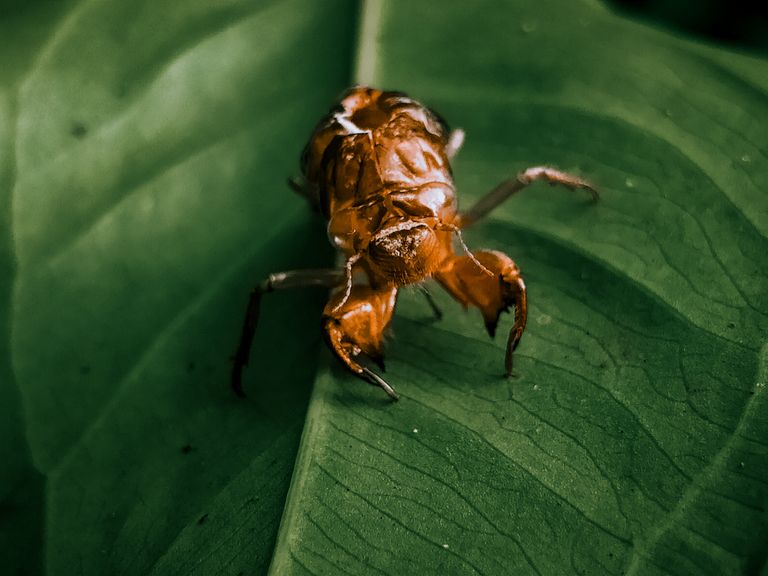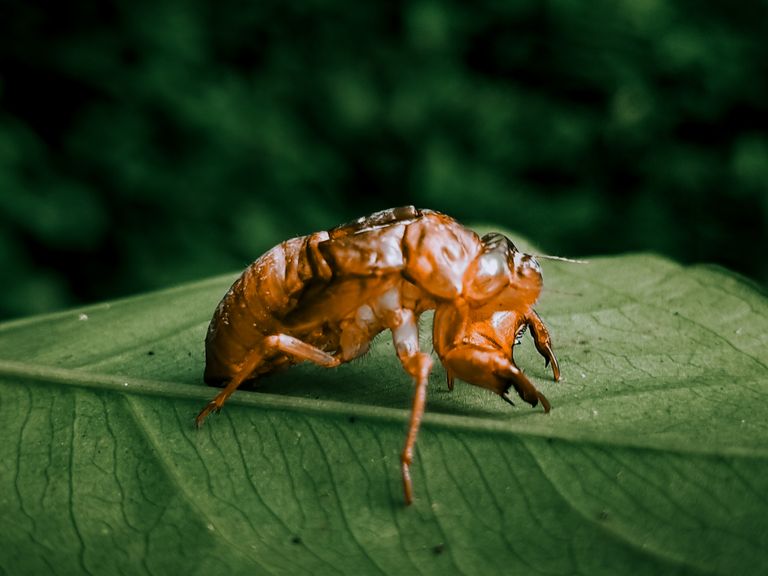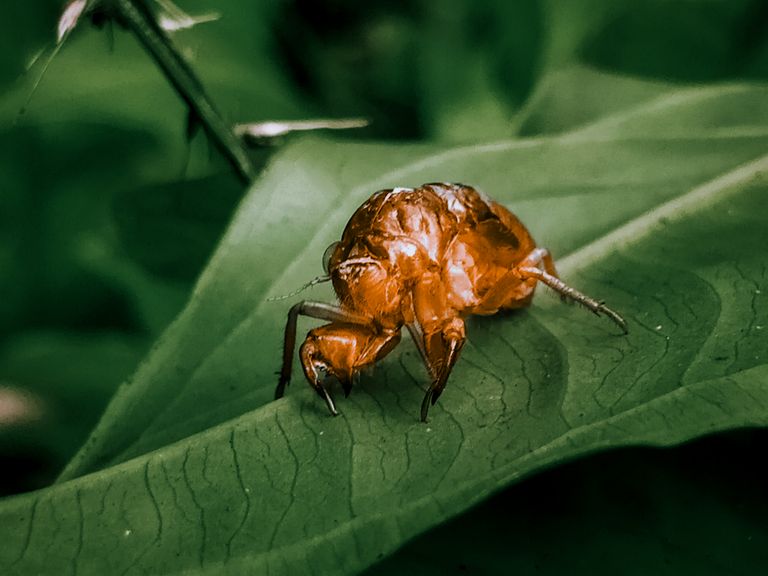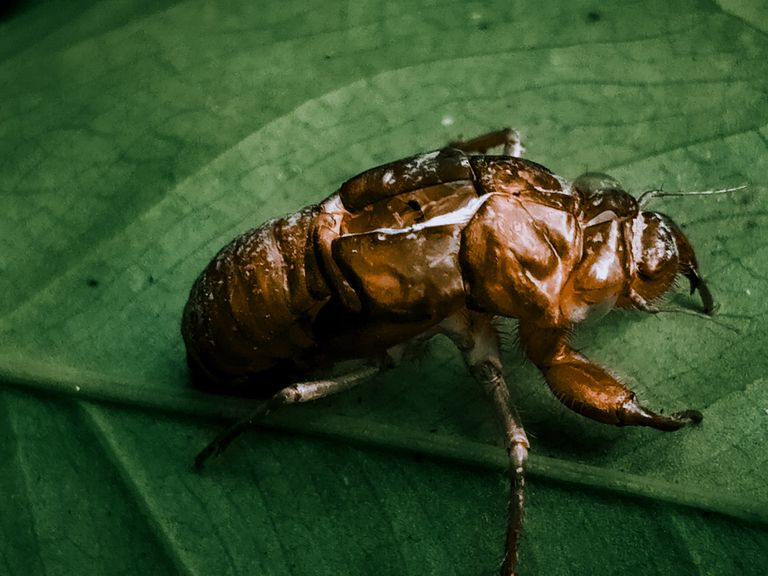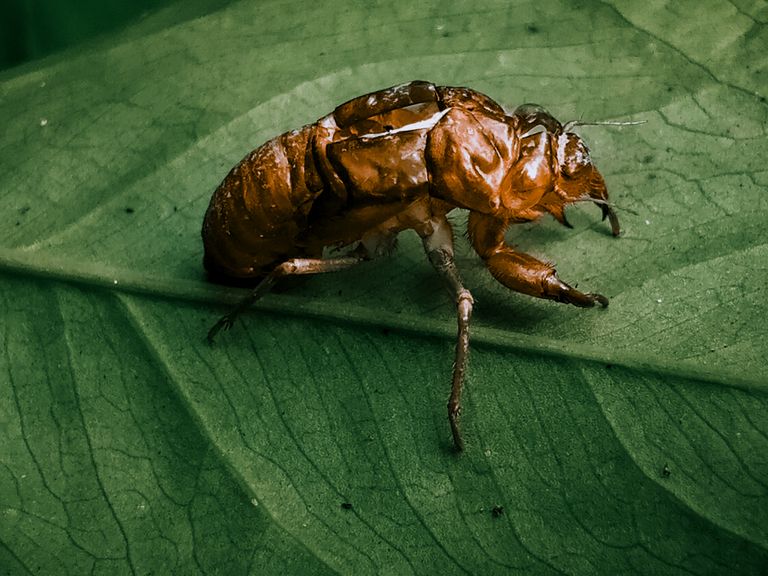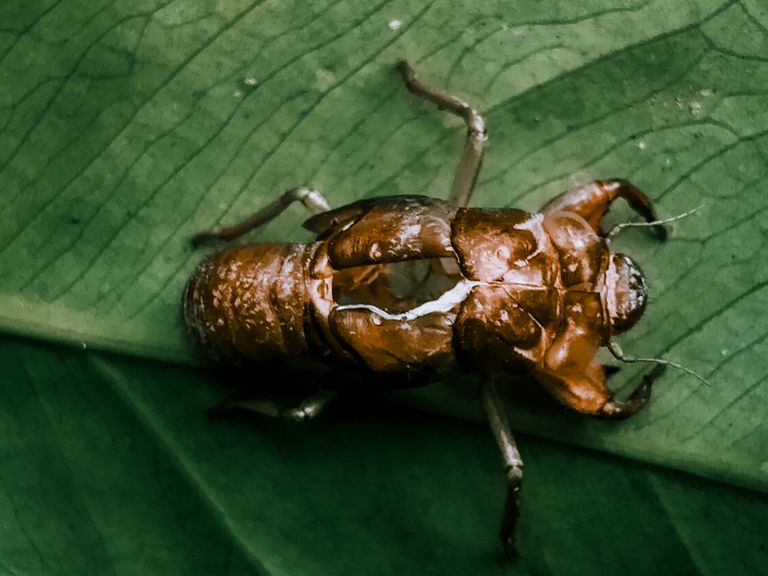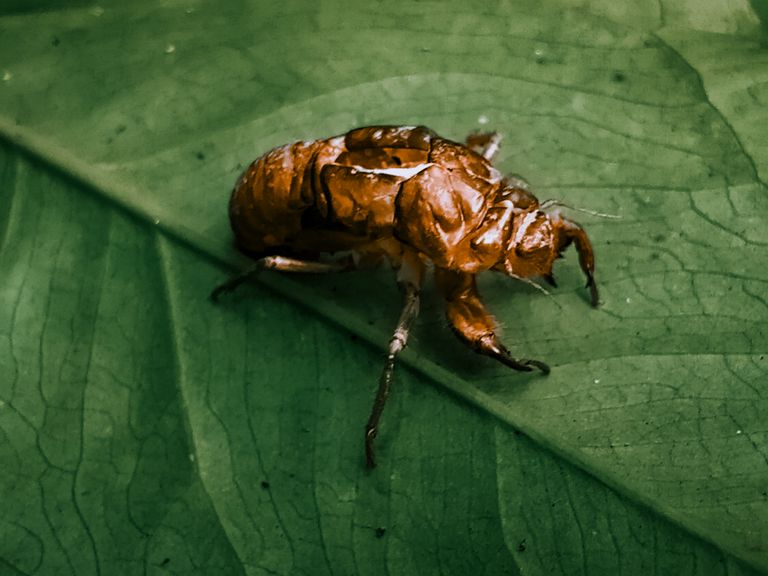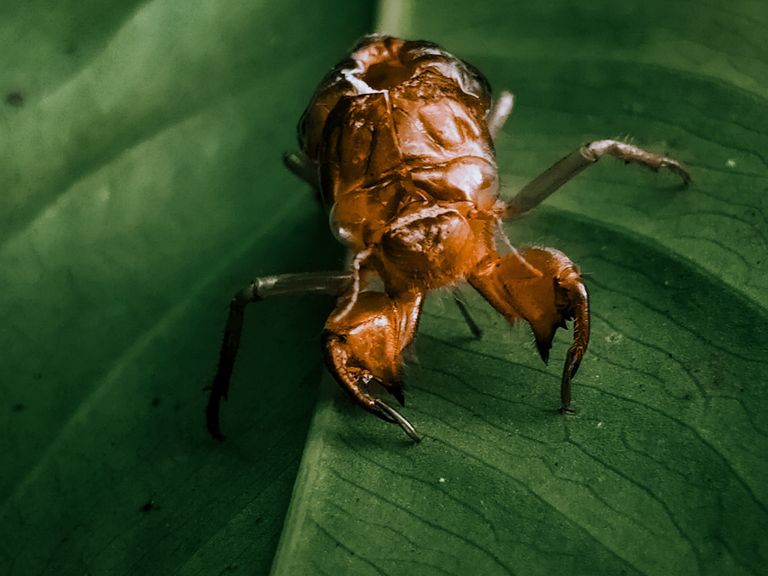
Hello world
while walking in the forest to hunt for photography and accidentally I found a chremistica ochracea shell lying on the leaves of a wild plant, at first this shell was full of mystery to me, but I made a lot of efforts to find the truth, and luckily I found enough to publish it all to you.
Chremistica ochracea shell or what is often called exuvia is one of the unique life traces of this insect, exuvia is the empty shell left after young insects go through the molting process or what is easier to understand is the "skin change process" to grow into an adult insect, This process is very important for insects because their old skin is no longer able to accommodate the insect's growing body.
This shell has a hard but light structure with a distinctive yellowish brown color and this color is easy to recognize among the green leaves as I have just published to all of you. If you look closely at the Chremistica ochracea shell it shows extraordinary detail, starting from the pattern on the from the back to the shape of the strong gripping legs, these details are not only aesthetically interesting but also provide insight into the evolution and adaptation of this insect.
for a nature observer like me, these shells or "exuvia" are a very important source of information for studying the life cycle of Chremistica ochracea, from shape to size to the shell, from the shell I start to estimate the age, habitat to the environment where the Chremistica ochracea insect started life , from several shells that I have found show signs that Chremistica ochracea starts life as a small insect underground, after growing they will come out to the surface to carry out metamorphosis, and the adult insect will emerge through the back and there is a straight cut hole as the exit for adult insects, my assumption is based on the body of the shell I found a lot of dry soil remains which means they came out during metamorphosis.
Apart from that, the presence of this shell also identifies good ecological conditions. As far as my experience in the insect world is concerned, I only find Chremistica ochracea shells in healthy and unpolluted environments. In general, I only find Chremistica ochracea shells in dense forests or damp bushes near rivers and my thinking can be considered rational because the environmental conditions near the river are very cool and the air is clean, so I interpret that the presence of the Chremistica ochracea shell shows that the quality of the environment is still maintained, thus this small shell is not only limited to the rest of life but also a symbol of harmonious ecosystem.
